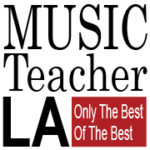The Remarkable Story of Bartolomeo Cristofori: The Man Who Gave the World the Piano

Imagine a world without the piano. That means neither Beethoven sonatas, nor jazz improvisations, nor pop ballads echoing through concert halls or cozy living rooms.
Hard to picture, right?
For that, we thank a quietly brilliant Italian piano inventor: Bartolomeo Cristofori.
From Padua to the Palace
Born on May 4, 1655, in the city of Padua, Cristofori’s early life is shrouded in mystery. Just like many great inventors, he left few clues about his childhood or what sparked his love of music and mechanics.
What we do know: he was a master builder of harpsichords and other keyboard instruments, so skilled that his reputation reached the ears of Prince Ferdinando de’ Medici, the music-loving heir to the Grand Duke of Tuscany.
In 1688, the Prince whisked Cristofori away to Florence, hiring him as the “Keeper of Musical Instruments” for the royal court. This was no ordinary job. Prince Ferdinando was obsessed with music and gadgets. So, he wanted someone who could not only repair his vast collection but also invent new wonders.
A Workshop of Wonders
Cristofori’s workshop was a noisy, bustling place, filled with the clatter of tools and the hum of creative minds. Here, surrounded by harpsichords, clavichords, and other early keyboards, Cristofori began to dream up something new.
The instruments of the day had a problem: they couldn’t play both loud and soft notes easily. The harpsichord, for example, always sounded at the same volume, no matter how hard you pressed the keys.
The Birth of the “Pianoforte”
Around 1700, Cristofori unveiled his masterpiece: an instrument he called the gravicembalo col piano e forte-literally, “harpsichord with soft and loud.”
Today, we know it simply as the piano.
What made Cristofori’s invention so special? He designed a clever hammer mechanism that struck the strings and immediately bounced back, allowing for quick, repeated notes and, most importantly, dynamic control.
For the first time, musicians could play softly or loudly, simply by changing how hard they pressed the keys.
This was revolutionary! That’s why the instrument’s name, pianoforte, means “soft-loud” in Italian.

FUN FACT:
The word “piano” in Italian means “soft,” while “forte” means “loud.” So next time you see “pianissimo” or “fortissimo” in sheet music, you’ll know where those terms come from.
A Lasting Legacy of the Piano Inventor
At first, Cristofori’s new instrument didn’t catch on. People were used to the harpsichord, and the piano’s dynamic magic took time to win hearts. But word spread. By 1711, at least four Cristofori pianos existed. Before long, Cristofori’s pianos attracted the attention of musicians and royalty all across Europe. Among his distinguished buyers was the King of Portugal, who was said to have paid a handsome sum to own one of these groundbreaking instruments.
Cristofori continued to tinker and improve his designs until his death in 1731.
He even trained apprentices, one of whom would later help invent the upright piano.
Today, only three of Cristofori’s original pianos survive. They are cherished in museums as the ancestors of every modern piano.
More Than Just the Piano Inventor
Cristofori’s creativity didn’t stop there. He also invented other keyboard instruments, like the spinettone and the oval spinet-though these have faded into obscurity, overshadowed by his greatest hit.
Did You Know?
- Cristofori’s original piano action was so advanced, it took other builders decades to catch up.
- The Medici Prince paid Cristofori a higher salary than his predecessor. So, it was clear that he knew talent when he saw it.
- Some of Cristofori’s instruments were so prized that they ended up in the hands of cardinals and kings.
A Quiet Genius, A Loud Impact
Bartolomeo Cristofori may not have become a household name, but his invention changed the soundscape of the world. Every time a pianist thrills an audience with a whisper-soft note or a thunderous chord, they’re echoing the genius of this humble Italian craftsman.
So next time you hear a piano, tip your hat to Bartolomeo, the piano inventor.
Looking for a highly qualified and friendly Los Angeles Piano Teacher? Experience the difference of learning from the top piano instructors!
Call today at (310) 220-0405 to schedule your initial lesson, or learn more about our private Los Angeles Piano Lessons.





